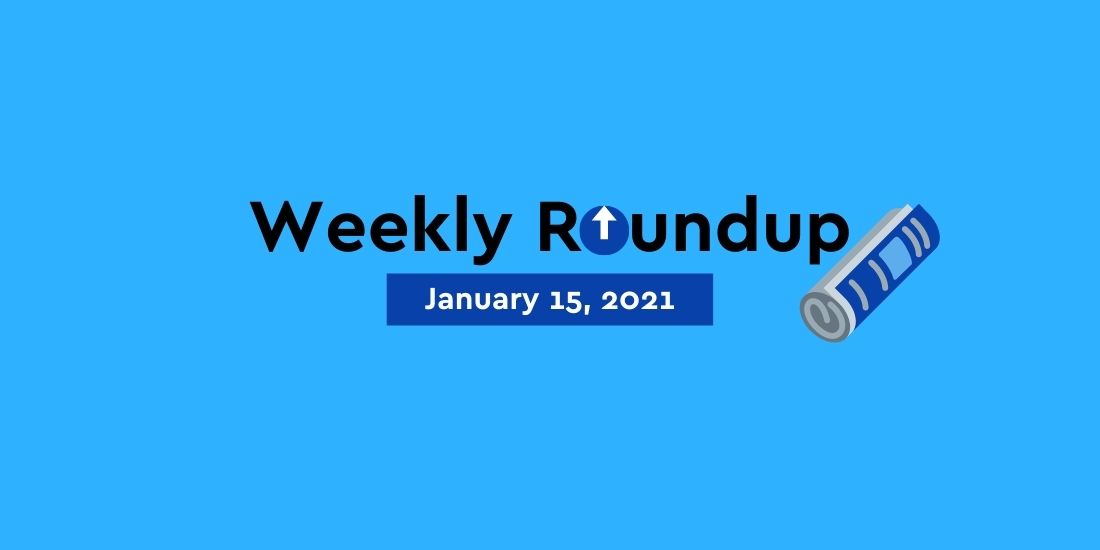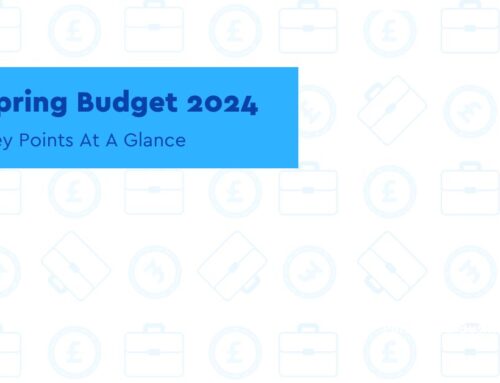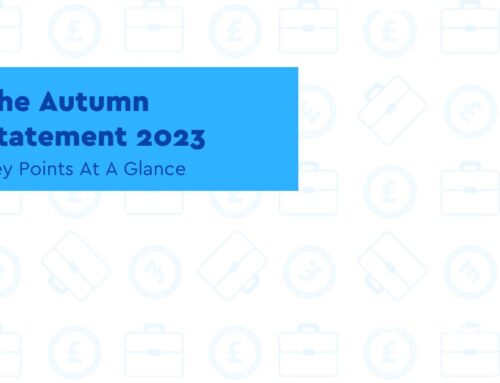What you need to know this week
Our round-up of the key business updates and insights for you
January 15, 2021
Welcome to our weekly wrap. This week we’ve rounded up the latest news and insights, including auto-enrolment pensions, a finance update from the Chancellor, tax changes and key dates to look out for in the first half of this year, plus, a round up of UK-wide funding and business news.
Flat fees removed on small pension pots
Flat annual fees on auto-enrolment pension pots worth £100 or less will be abolished, the government has announced.
The move to end the charge on small pension pots is designed to help prevent savings being slowly eroded over time.
With many workers moving from job to job and accruing a number of small pension pots, the measure is expected to boost retirement savings for hundreds of thousands of workers.
More than 10 million people are saving for their retirement under auto-enrolment with £22.7bn a year being saved compared to 2012. Additionally, there will be no change to the 0.75 per cent charge cap for auto-enrolment pensions and transaction costs will not be included.
The ban is designed to protect small pots, which are often caused by savers switching jobs frequently and being automatically signed up to new pension schemes each time, from being eroded by providers’ charges. For example, for a pot of £500 deferred at age 22, it would be worth around £100 by age 68 under this charge structure.
Meanwhile, the pensions dashboard programme that will enable UK citizens for the first time to see all their retirement funds, including state, workplace and personal, in one secure online hub, was recently delayed until 2023.
In time, the dashboard will increase awareness of the potential impact multiple small pots can have, and may prompt individuals to look into benefits such as consolidating their pots for an optimal outcome.
Tax changes and key dates for 2021

April 5: Inheritance tax rules changes
By April 2021 married couples will be able to leave up to £1 million tax-free to their direct descendants.
The additional inheritance tax free ‘residence nil rate band’ will rise to £175,000. To qualify, a property must have been lived in at some point by the deceased, and be passed onto direct descendants, such as children and grandchildren.
The residence nil rate band is available on top of the existing inheritance tax nil rate band of £325,000, so that in 2020/21 an individual will potentially be able to leave £500,000 free of inheritance tax.
This is an important change for families with medium sized homes and savings, as they will now be able to pass on and benefit from their estates tax free.
April 6: Lifetime ISA charge relaxation ends
From April 6 you will be charged 25 per cent if you withdraw money from your lifetime ISA, for any reason other than buying a first home or to use it as your pension.
The government altered the Lifetime ISA rules to help those adversely affected by the coronavirus pandemic.
However this change is set to be reversed, so if you need to withdraw from your ISA you’ll need to do so before then.
April 6: Changes to wages and income tax
In his comprehensive spending review, Rishi Sunak confirmed that the National Living Wage will increase 2.2% to £8.91 from April and will become available to people aged 23 and above, down from the current age of 25.
Workers aged 21 and 22 will see their wages go up to £8.36, and 18 to 20 year olds pay will increase to £6.56.
It was also confirmed that the government will increase the 2021/22 personal allowance in line with the September Consumer Prices Index (CPI) measure of inflation. This figure stood at 0.5%. It will also apply to the higher rate threshold.
The increase of 0.5 per cent will make the allowance £12,570 for basic rate taxpayers and £50,270 for higher rate taxpayers.
April 6: Pension lifetime allowance (LTA) increases
Currently, pensioners have to pay tax on their pensions if it exceeds £1.073 million. From April this allowance will increase to £1.079 million, an increase of 0.5 per cent in line with inflation.
The LTA rises each year at the same rate as the consumer price index figure, and this means that savers will be entitled to an additional £1,450 in tax-free cash in 2021-22.
April 30 – End of the Furlough Scheme
The furlough scheme is set to come to an end on April 30 following the recent extension by Chancellor Rishi Sunak.
The government is currently continuing to contribute 80% towards wages, while employers will only be required to pay wages, National Insurance Contributions (NICS) and pensions for hours worked; and NICS and pensions for hours not worked.
Sunak calls for return to ‘sustainable finances’
Chancellor Rishi Sunak has reiterated the need to return to ‘sustainable’ levels of government spending as he foreshadows future Budget cutbacks.
Sunak said in an exclusive interview that the Treasury’s £280bn Covid spending over the past year was ‘the right thing to do’, but that ‘over time’ he had to get the nation’s finances back under control.
Some economists have said the UK’s record levels of debt are manageable due to record low interest rates around the globe; the Bank of England’s official borrowing rate is at 0.1 per cent, the European Central Bank’s is -0.5 per cent and the US’ Federal Reserve’s target range is 0 to 0.25 per cent.
However, the Chancellor said we should show ‘humility’ and accept it is difficult ‘to know what will happen’ in the future, with the UK exposed to even a minor uptick.
The Office for Budget Responsibility is predicting a £394bn Budget deficit this fiscal year, which will be seven-times larger than the 2019-20 deficit.
This comes to 19 per cent of annual GDP, which makes the deficit equivalent to the UK’s war-time spend in 1944/45.







